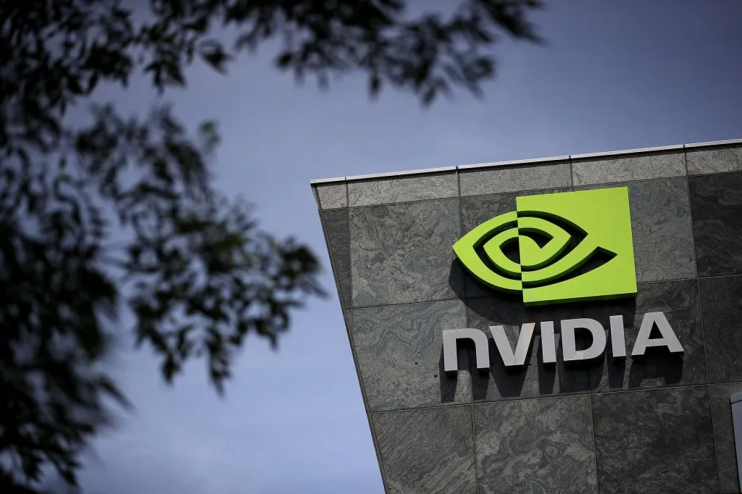Nvidia neck and neck with Apple as world’s most valuable firm as stock rises

Nvidia‘s stock rose by 3.4 per cent on Tuesday to $149.43 (£118.95) per share bringing it neck-and-neck with Apple, following various launches for the tech giant at the CES in Las Vegas on Monday.
At the annual conference, the firm revealed a host of new products from new gaming chips, a personal AI supercomputer and AI models for robotics and self- driving cars.
Following the announcement, the company has been valued at $4.66 trillion (£3.7 trillion) – making it the world’s second-most valuable company behind Apple.
This is due to chief executive Jensen Huang underscoring Nvidia’s ambitions to dominate the AI landscape and expand its reach into robotics, gaming, and autonomous vehicles, dubbing robotics a “multi-trillion dollar opportunity” during his keynote address.
This comes after Nvidia briefly dethroned Apple as the world’s most-valuable company last year. In Novbember, Nvidia hit a market capitalisation of $3.43t (£2.66t) after the stock rose nearly three per cent, nudging Apple’s $3.38t (£2.62t) into second place.
Microsoft is in third place.
Next generation gaming chips
Central to Nvidia’s rise was Huang’s announcement of Nvidia’s new introduction as part of the Blackwell family: the RTX 50 series.
The new models offer unprecedented performance, and ability is set to begin this month.
AJ Bell analysts commented on the importance of this launch, noting that “The RTX 50 series will use Nvidia’s Blackwell AI technology to support highly detailed, hyper-realistic graphics.
“This launch is a reminder that Nvidia is not just about AI; the business’ success was founded on gaming technology, and RTX 50 implies it remains on top of its ‘game”, they said.
Project Digits: Nvidia’s personal AI supercomputer
Another of Huang’s most significant announcements on Monday was the release of Project Digits, a desktop AI supercomputer starting at $3,000 (£2,387).
Equipped with the new Grace Blackwell Superchip (GB10), Project Digits delivers the processing power previously reserved for large-scale data centres.
It can handle AI models with up to 200 billion parameters – which will be expandable to 405 billion when two systems are linked.
“AI will be mainstream in every application for every industry. With Project Digits, the Grace Blackwell Superchip comes to millions of developers”, Huang announced.
The company design, comparable to a Mac Mini, will make Project Digits accessible to data scientists, researchers, and students. Marking a technological milestone, analysts predict it could significantly accelerate AI adoption in industries ranging from healthcare to manufacturing.
“Nvidia has unveiled something that promises to be faster and better than what’s already on offer”, AJ Bell analysts commented.
Robotics: an AI ‘tipping point’
Nvidia also announced its advancements in robotics, unveiling AI models for humanoid robots and announcing a Toyota partnership to integrate its self-driving car technology.
Huang predicted that robotics would become “the largest technology industry the world has ever seen”, citing a market for humanoid robots alone expected to reach $48bn (£38bn) within two decades.
By leveraging its AI chips and software, Nvidia aims to revolutionise robotics in smart factories, warehouses, and autonomous vehicles.
Huang stated that the robotics industry had reached a “technological turning point” thanks to AI advancements that enable robots to learn more efficiently by simulating, and analysing, vast amounts of real-world data.
Models and partnerships
Nvidia also launched foundational AI models on its Cosmos platform, which have been trained on 20 million hours of video data.
These models, free for developers to use, were likened to large language models (LLMs) behind toold like OpenAI’s ChatGPT.
“Investors love the narrative around Nvidia,” AJ Bell noted. “The string of announcements at CES provided plenty of fodder to keep people excited.”
